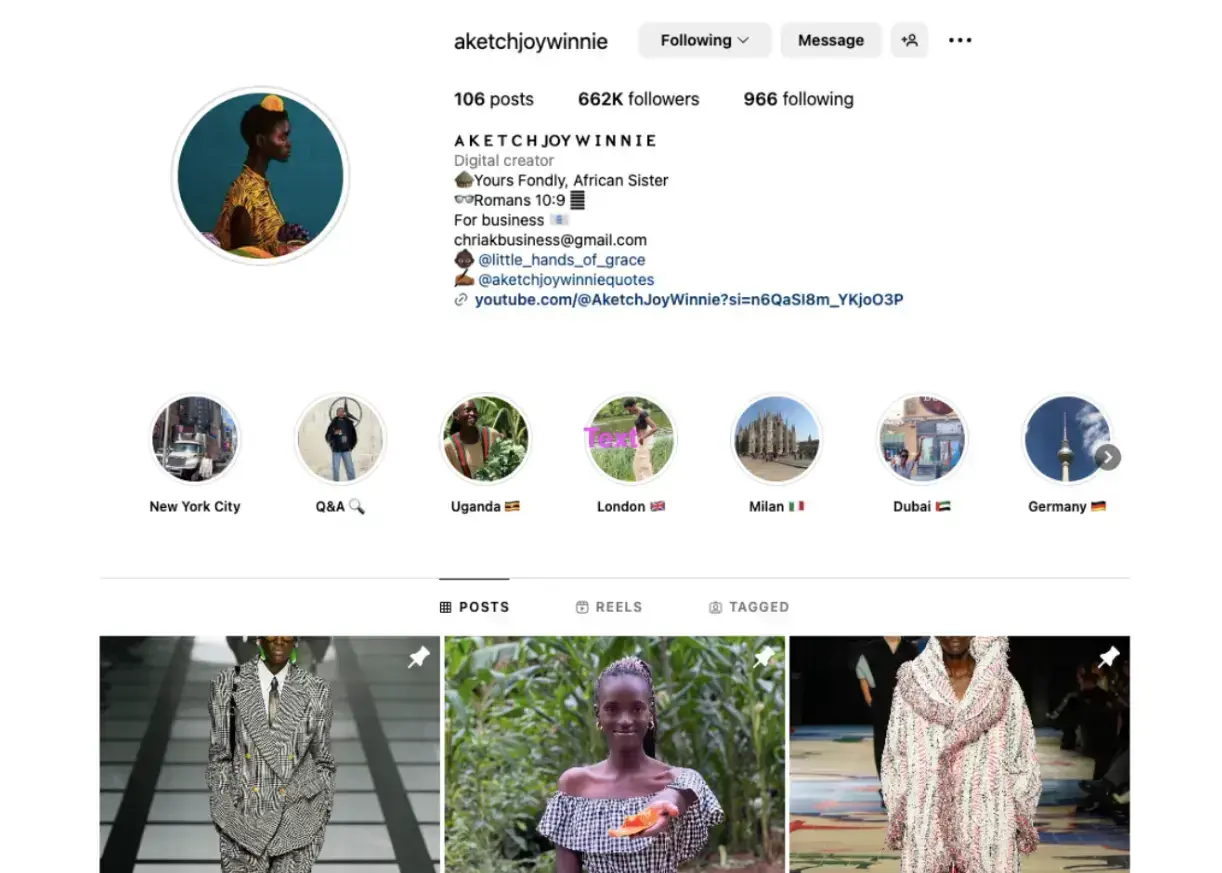Want to grow your business, reach new markets, and gain a devoted customer community?
A brand advocacy program may be exactly what you need.
Brand advocates are customers who love your brand enough to promote it.
A good brand advocate can provide the social proof and positive reviews you need to bring in new customers and transform current customers into loyal, repeat customers.
Skip to:
Sound good? It is!
Getting genuine customers to recommend your brand to others is one of the fastest ways to build credibility, trust, loyalty, and your brand reputation.
But how can you find potential brand advocates? And how can you encourage them to go to bat for your business?
Let’s look at how to build a successful brand advocacy program to grow your business and boost customer retention.
What Does a Brand Advocate Do?

Free-to-use image sourced from Pexels
A brand advocate is someone who will promote your brand in ways that your marketing team can't manage.
They'll share your content on their social channels, make social posts about you, give rave online reviews of your products, and use word-of-mouth marketing to pull in new customers.
People trust other consumers.
Someone not officially affiliated with a company is often considered more credible than the company itself. After all, if there's nothing in it for someone, why would they promote or praise a product unless they truly believe in it?
Of course, there often is 'something in it' for brand advocates. Many brands will reward good advocates with things like discounts and loyalty points.
The trick is to strike a balance in which your brand advocates are all completely genuine in their feelings about your brand but are also encouraged to share those positive feelings with others.
A brand advocacy program is a great way to encourage this without losing credibility.
The Benefits of a Brand Advocacy Program
Why make the effort to pull in brand advocates? What are the benefits?
Here are just a few of the ways that a brand advocacy program will be good for your brand:
-
It boosts customer loyalty
Brand advocacy helps to create strong, secure relationships with brand advocates themselves.
That alone is worth the effort. Even a handful of loyal customers who will share your every blog post and leave positive reviews are worth their weight in gold.
However, a brand advocacy program can build loyalty in bigger ways than this.
As we mentioned, people are more inclined to trust independent endorsements over employee advocates.
When someone hears about your brand through a brand advocate, they're primed to expect good things from you. Then, all you have to do is fulfill those expectations!
All in all, brand advocates bring in customers who are ready and eager to appreciate your products.
And when your products are as good as they expect, they'll be more likely to join your brand community and become loyal customers.
-
It increases brand exposure

Free-to-use image sourced from Pexels
Brand advocates will share your brand outside of your usual audience. Through brand advocates, you can reach potential customers in niche markets that your traditional marketing wouldn't get to.
Your brand advocates may share your content on the same social networks that your marketing teams use, but through the magic of the algorithm, they will reach people that your marketers can't across multiple platforms.
This isn't a poor reflection on your marketers. It's simply how the algorithms work.
Your marketing posts will reach people who have both been identified as potential customers by your social networks and who have opted into your kind of marketing.
And your online popups will still grab the attention of website visitors. Brand advocates, however, can reach their own friends and family and beyond.
If you want to gain a wider audience and push brand recognition to the next level, there really is no substitute for organic shares. A good brand advocacy program can get you those shares.
-
It humanizes your brand
It's much easier to build a trusting, loyal relationship with another human than to build a relationship with a brand. Brand advocates present a human face that online consumers can connect with and relate to.
Many brands use things like a brand persona, a mascot, or influencers to humanize themselves and build relationships with customers.
Using these, in addition to social proof and customer testimonials from brand advocates, can help your brand build relatability and loyalty, which in turn will help grow your business.
How to Build a Successful Brand Advocacy Program
So, a brand advocacy program is a powerful tool. It can work wonders on everything from customer retention to social media mentions.
But how can you set up a successful brand advocacy program?
Here are some tips:
-
Research potential advocates

Free-to-use image sourced from Unsplash
When researching potential brand advocates, look for people who are
- Vocal about positive brand experiences
- Have given you positive reviews
- Will chime with your target audience
- Belong to your loyalty program (if you have one)
- Post frequently on social media platforms
- Will be relatable and engaging for potential customers
- Are credible and trustworthy
Utilize tools like questionnaires or AI to comb the web for individuals who've made favorable mentions of your brand online.
Additionally, consider integrating a form builder plugin on your website to collect feedback and identify enthusiastic customers who could potentially become valuable advocates.
For example, a good brand advocate will be a genuinely happy customer who is happy to post reviews and will reach larger audiences through positive, engaging social posts.
They won't act or sound like bots, will post from credible domain extensions, and will be warm and relatable with potential customers.
How can you make sure that brand advocates tick all these boxes?
Well, there are various methods you can use. Try sending out questionnaires to potential advocates or using AI to comb the web for people who've made positive mentions of your brand online.
-
Offer incentives for advocacy
You don't want to turn your brand advocates into paid marketers who do nothing but parrot company content. That will be bad for your credibility.
But this doesn't mean you can't pull in brand advocates by offering incentives.
For example, you might
- Offer discount codes to people who comment on and share your content
- Run competitions for the best user-generated content (more on that in a moment)
- Hold prize draws for people who review your products
- Create a loyalty program with rewards for the best, most engaged advocates
- Post exclusive content on a custom domain accessible only to brand advocates
Furthermore, cultivating a community where brand advocates feel valued and appreciated for their contributions can significantly enhance the effectiveness of your brand advocacy program.
Providing exclusive content tailored specifically for brand advocates, such as behind-the-scenes insights into your company culture and the development of your latest ecommerce website theme, fosters genuine engagement and encourages the creation of authentic advocacy content, thereby strengthening brand loyalty and credibility.
This kind of thing encourages genuine, valuable advocacy content without sacrificing credibility.
-
Promote user-generated content

Free-to-use image sourced from Unsplash
User-generated content (UGC) is content created and shared by customers.
A good UGC campaign not only shows your products in their best light, but it can also give a huge boost to customer engagement, help build loyal customer relationships, and create new brand advocates.
Apple's famous 'Shot on iPhone' phygital marketing campaign was a triumph both of UGC and customer advocacy.
Apple asked customers to post photos taken on their iPhones on social media using the hashtag #ShotOniPhone. Apple then picked the best of these photos and turned them into physical adverts pasted on billboards, the sides of buses, etc.
The winning photographers became 'Apple Stars' and happily shared their achievements on their social media channels, effectively turning them into organic brand advocates.
Of course, some products lend themselves to UGC more than others.
If you're selling, for example, call center scheduling software, then you may struggle to encourage UGC.
In contrast, a company that sells clothing can simply ask customers to post pics of themselves wearing branded products. If your product isn't easy to turn into UGC, it may be best to focus on things like positive reviews and blog post shares.
-
Use influencers and affiliates
An effective brand advocacy program should be supported by paid influencers/affiliates.
Influencers and affiliates have many of the benefits of brand advocates. They can introduce your brand content to new audiences, they have the trust of their fans, and they can generate their own content to support your marketing.
However, you have more control over paid affiliates than brand advocates.
This means you can guide them to post the kind of content that will boost engagement and encourage customers to become advocates themselves.
Influencers and affiliates are great for building buzz and brand recognition when you want to break into new markets. They can also answer questions that potential advocates in new places may have about your brand.
For example, if your brand has a foreign domain name, influencers can clear up questions like what .io means or how your product is used in its home market.
Influencers and affiliates provide a model for potential brand advocates.
In addition to reaching new brand advocates, influencers and affiliates can lead by example, encouraging others to make their own posts, leave their own reviews, and engage organically with influencer-led content.
If reaching out to big influencers isn’t your style, consider hiring micro-influencers. Micro-influencers can bring in fantastic returns, even if they don’t have the huge audiences of bigger names.

Screenshot taken from instagram.com
Use Brand Advocates to Build a Customer Community and Boost Your Business
If you want to gain the trust and loyalty of your customers, starting a brand advocacy program is one of the best ways to go about it.
Brand advocates who are relatable, enthusiastic, and genuine can reach potential customers in ways that your employees can’t.
There is no single way to run a successful brand advocacy program. The best method for you will depend heavily on your brand persona, your product, and your marketing strategy.
Whatever route you choose for your brand advocacy program, we hope the tips in this article are helpful. Good luck in starting your new customer community!

